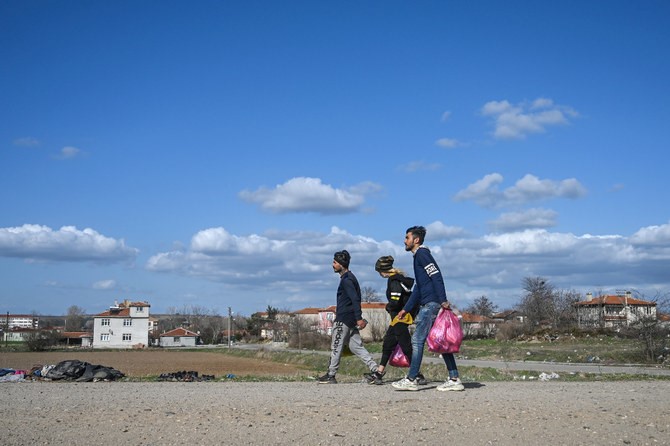BEIRUT: The Lebanese army announced on Thursday that it successfully halted the entry of approximately 1,200 Syrian migrants this week, a time when both nations grapple with severe economic challenges.
Millions of Syrians have already fled their homeland since the outbreak of the civil war in 2011, triggered by the government’s suppression of peaceful pro-democracy demonstrations. The majority have sought refuge in Lebanon, which the United Nations has identified as hosting the highest number of refugees per capita globally.
In an official statement, the Lebanese army reported that it “prevented approximately 1,200 Syrians from crossing the Lebanese-Syrian border in the past week.” This comes after their announcement on August 23 that they had turned away 700 Syrians attempting an illegal entry into the eastern Mediterranean country.
A security official, speaking on the condition of anonymity as they lacked authorization to communicate with the media, stated, “The Syrian-Lebanese border is porous, and the number of mobilized soldiers is insufficient.”
They further explained, “Most Syrians come to Lebanon in search of employment opportunities, driven by the unprecedented deterioration of living conditions in their own country.”
The Syrian government’s response to the 2011 protests evolved into a civil war that resulted in over 500,000 casualties, devastated the country’s economy, and forced millions into exile. In the early stages of the conflict, Lebanon welcomed hundreds of thousands of Syrian refugees before imposing a ban on their entry in early 2015.
Subsequently, many Syrians have resorted to smuggling routes to cross the border, seeking improved living conditions in Lebanon and beyond. Lebanese officials assert that the recent surge in Syrian migration is attributed to protests against dire living conditions, exacerbated by the removal of fuel subsidies by the government in Damascus.
Lebanon, grappling with a severe economic crisis for years, estimates that it currently hosts nearly two million Syrian refugees, with the United Nations having registered nearly 830,000 of them.
Source: Arab News










